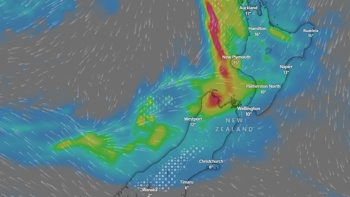
Kiwi climate change experts have delivered a mixed verdict on a historic agreement by nearly 200 nations to shift away from fossil fuels - with one concerned language loopholes will allow planet-warming pollution to carry on here and abroad.
The UN’s COP28 conference in Dubai culminated with the approval of a central document that fell short of seeking a “phase-out” of fossil fuels, instead calling for a “transitioning away from fossil fuels in energy systems, in a just, orderly and equitable manner, accelerating action in this critical decade”.
The non-binding statement aimed to bring net greenhouse gas emissions to zero by 2050 – just as New Zealand has legislated itself to – and projected rising carbon pollution to peak in 2025 to hit an agreed-upon threshold.
Without a treaty, UN’s climate chief Simon Stiell said, the planet, now likely to record its hottest year, could be on path for 5C of heating: “a death sentence for our species”.
He urged nations to not stop pushing.
“Now, all governments and businesses need to turn these pledges into real-economy outcomes without delay.”
University of Canterbury political scientist Professor Bronwyn Hayward said that call was important, given the Paris Agreement, which New Zealand and 195 other nations signed up for, had no mechanism to force governments to increase their actions other than public and peer pressure.
“Despite a watered-down final COP text with a ‘litany of loop holes’, as the Alliance of Small Island States described it, it is increasingly difficult for politicians, lobby groups and donors to benefit from business as usual,” Hayward said.
“New alliances of diverse communities and businesses understand what is at stake. Speaking out loudly on climate is not ‘hysteria’, it is a vital action for change.”
Like many other climate commentators, Massey University’s professor emeritus Ralph Sims was somewhat more sceptical about the message the agreement’s tweaked final text sent to nations.
“It really does give the current Government an out for being ambitious in our emission reductions, because oil and gas, they could argue, has been agreed in Dubai for further exploration.”
That a deal on international carbon markets had been kicked down the road, Sims added, also meant the Government had more breathing space to tinker with our central climate policy lever, the Emissions Trading Act.
/cloudfront-ap-southeast-2.images.arcpublishing.com/nzme/PITQFZDUDO67FKAXW7CQEGX5UU.jpg)
Victoria University climate scientist Professor James Renwick.
Speaking to RNZ’s Morning Report, Climate Change Minister Simon Watts remarked on the significance of the result at Dubai.
“We’ve had a pretty historic agreement in the context that we’ve now got consensus and countries have committed not only to get to net zero energy, but also to build a world that no longer relies on fossil fuels - first time that’s happened,” he said.
“Could more be done and should more be done going forward? Yes, but this is a significant step forward for a consensus decision.”
Victoria University climate scientist Professor James Renwick had similar sentiments.
“I was pleased to see that the COP28 statement acknowledges the need to move away from fossil fuels, finally, even if it is a pretty soft-shoe approach,” he said.
“A step in the right direction... let’s hope it can turn into a stampede.”
The agreement came soon after our Climate Change Commission turned in its advice on how New Zealand could meet its emissions budget for 2026 to 2030, which would require stripping out the equivalent climate pollution that 3.6 million cars would pump out over that period.
Most of its 27 recommendations lay in energy and industry – namely through swapping fossil fuels with renewables to power factories, buildings and transport systems – which could ultimately save businesses and households around $2b each year by the 2040s.
Watts welcomed the commission’s advice, but climate advocates were nonetheless concerned the new coalition’s policy roll-backs – including an end to the ban on future offshore oil and gas exploration – could jeopardise progress to date.
“It would be hypocritical for the Government to overturn the ban on offshore oil and gas exploration, or allow expanded coal production, having just called for the global phase out of those same polluting industries,” Oxfam Aotearoa’s Nick Henry said.
Jamie Morton is a specialist in science and environmental reporting. He joined the Herald in 2011 and writes about everything from conservation and climate change to natural hazards and new technology.
Take your Radio, Podcasts and Music with you









